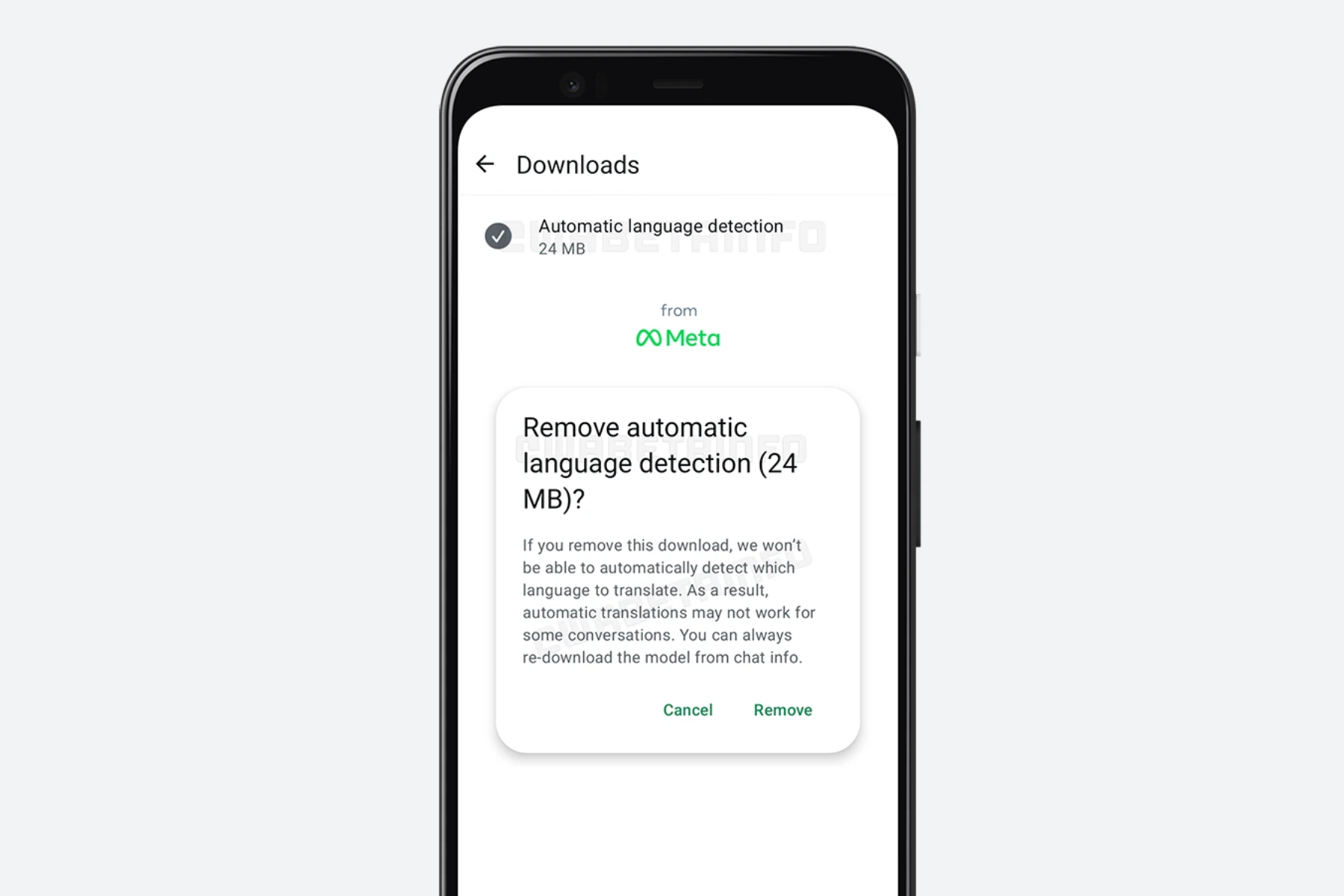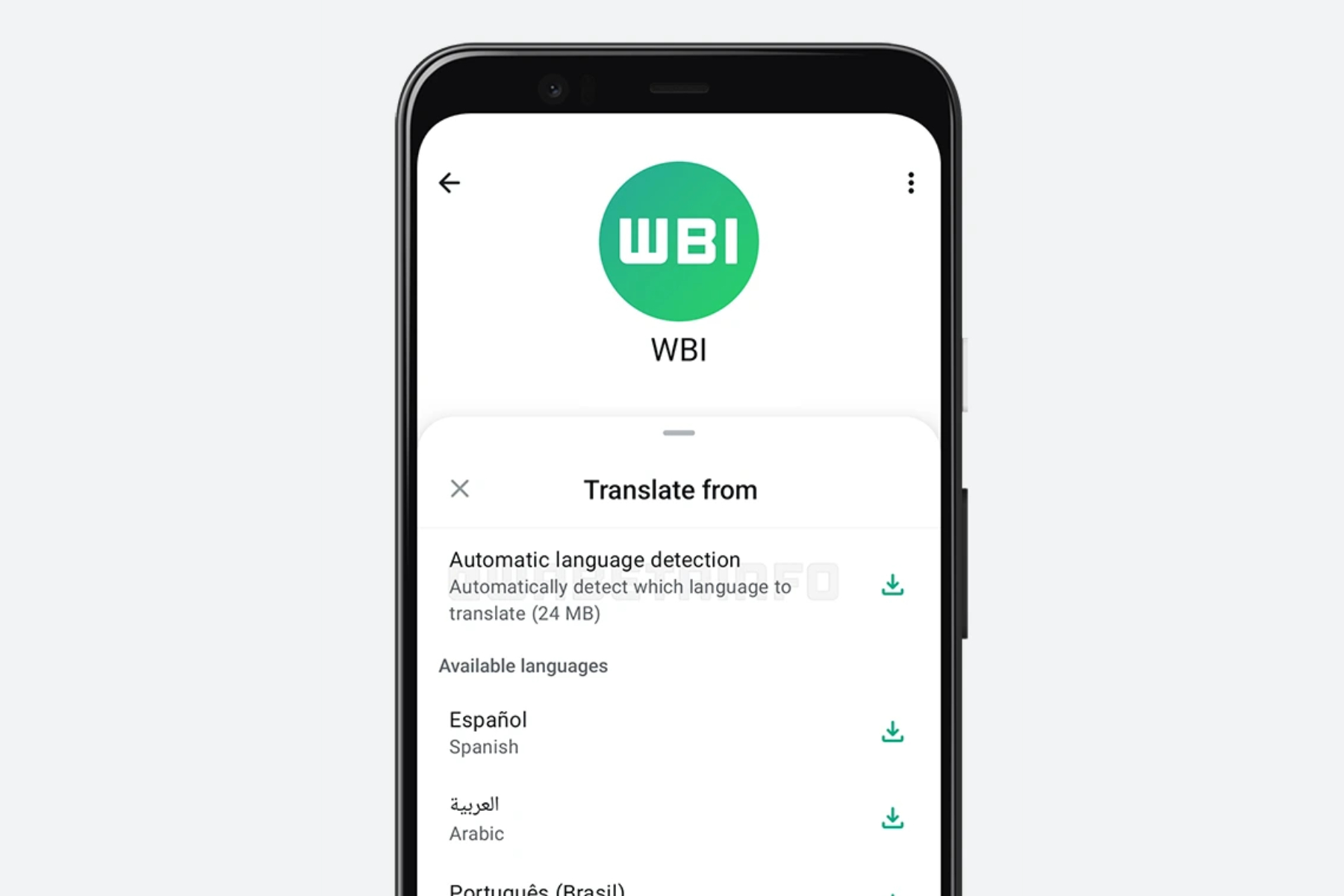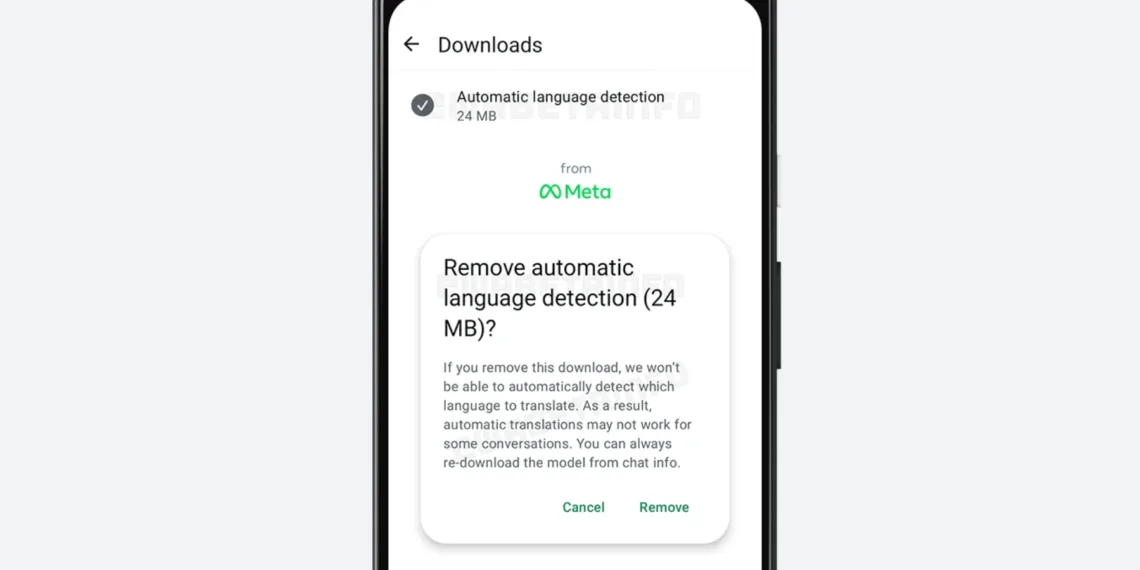Select Language:
WhatsApp may soon have the capability to automatically recognize and translate your text messages. If Meta's latest advancements in AI are any indication, features for translating voice and video content could follow shortly. While it appears to be a straightforward translation feature on the surface, there's a deeper significance at play.
A little over a year ago, I reported on an application developed by the Indian government aimed at recording attendance and processing payments for more than 150 million daily wage workers who earn as little as three dollars a day. During my discussions with these workers, I discovered that language barriers emerged as a significant hurdle amid challenges like a slow user interface, inconsistent internet access, and a lack of digital literacy.
In a nation where there are 22 officially recognized languages and over 100 others commonly spoken, inadequate translation resources can leave the most vulnerable populations at a serious disadvantage. Many official communications, including those from banks, are often not available in local languages, even though WhatsApp connects half a billion users in India.
For instance, I receive alerts from my bank and Amazon alongside updates about milk deliveries and voter IDs directly through WhatsApp, emphasizing how integral this platform has become. It's baffling that despite Meta's involvement in open-source translation projects like No Language Left Behind (NLLB), they haven't prioritized addressing language diversity on such a major platform. Recently, the company announced a massive $60 billion investment in AI development for the year, making the oversight even more puzzling.
How WhatsApp Can Change the Game?

I may not be a huge fan of Meta’s approach to AI, but I appreciate useful tools like automatic voice note transcription. It appears that the company is finally focusing on practical applications of AI, starting with WhatsApp.
This messaging app, boasting nearly three billion users, is set to introduce a system for translating chats automatically. A recent investigation by WABetaInfo revealed forthcoming assets that suggest a translation feature similar to Google Translate, complete with language bundles.
According to these updates, users will need to download a 24MB dataset to enable the application to recognize a language automatically. After that, they can select a preferred language from a scrollable list and install the corresponding bundle for quick translation of their WhatsApp chats.
This is an excellent enhancement for countries such as India, where low digital literacy levels make people particularly susceptible to scams. Similar trends exist across Asia and Africa as well. The default use of English often conveys a sense of social power that scammers can exploit, targeting the most vulnerable with fewer digital skills.
This Can’t Come Soon Enough

In recent years, deceptive messages mimicking government communications—typically written in English and spread via WhatsApp—have duped countless individuals in India, leading many to lose substantial amounts of money. Personally, I've encountered such messages but recognized them as scams due to their obvious flaws, a skill I attribute to my background in journalism.
However, many others struggle to spot these scams and unfortunately fall prey to them.
The introduction of automatic translations in WhatsApp may not eradicate the issue entirely, but it will empower the average user to understand better what is being communicated. Additionally, this feature could enhance the enjoyment of group chats, especially among friends from diverse linguistic backgrounds.
There's substantial human value in this feature.
Many individuals still ask a friend or relative to read aloud WhatsApp messages they receive, which I recently did for my grandfather. It’s common to see people relying solely on voice notes for communication when typing or understanding English isn’t an option.
While it's still uncertain when Meta will officially implement its automatic translation system in WhatsApp, its presence in the beta channel indicates that the company is seriously considering it. I hope that when the feature launches, the company will promote it effectively so that many people can benefit from it.







